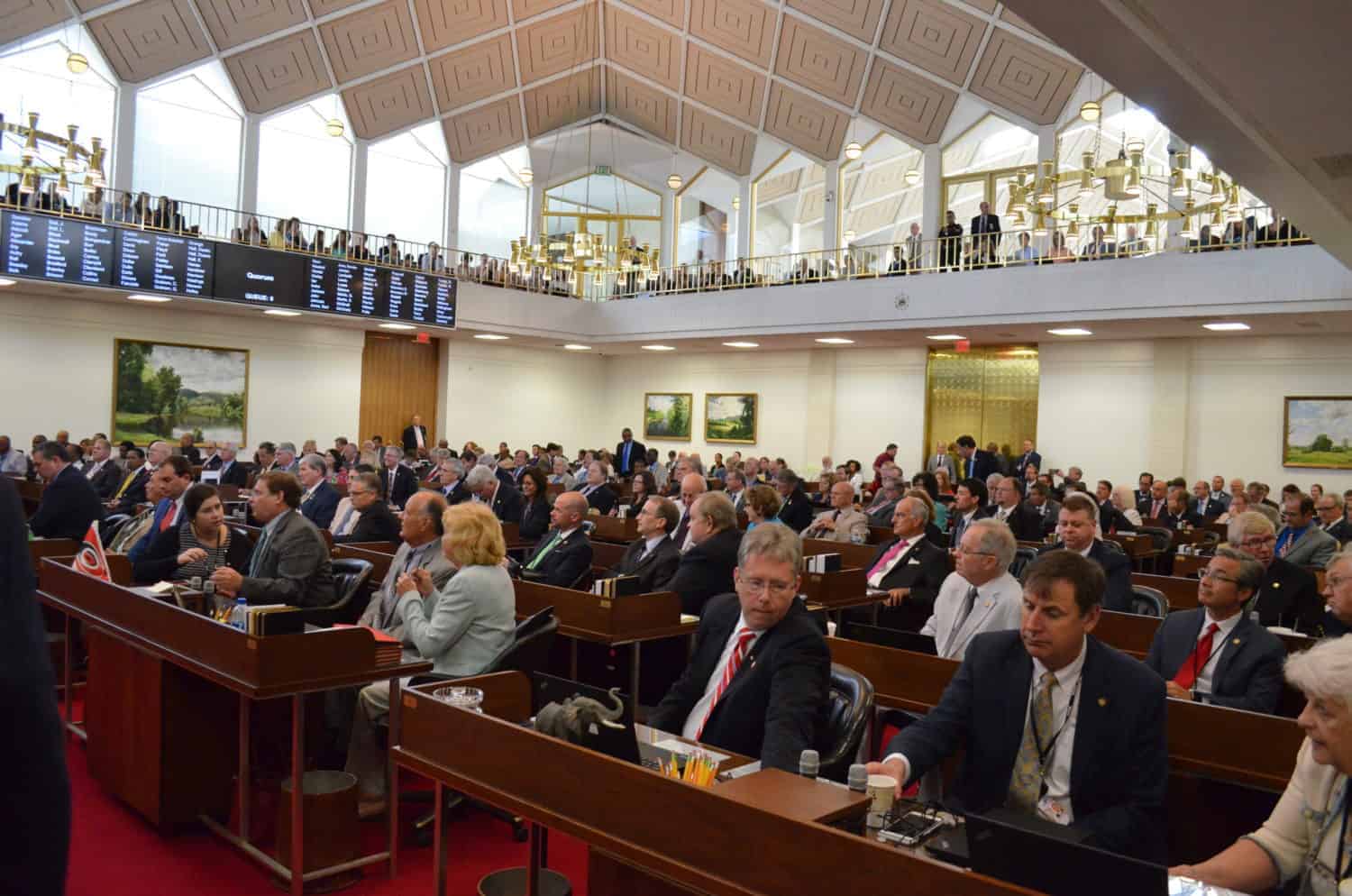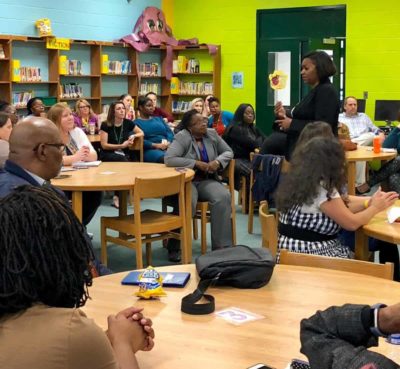This changes everything.
For the past few years, Republicans have controlled the General Assembly with such clear majorities that they could do anything they wanted — assuming they could get all of their GOP allies to follow suit. Republican lawmakers could largely ignore the wishes of both the Governor and fellow Democratic lawmakers.
With a supermajority, they had nothing to fear from the Governor’s vetoes — be it a Republican or Democrat — they could simply override them.
The result has been that Republicans have mostly pushed their own conservative policy while Democrats railed from the sidelines and the Governor wielded symbolic vetoes.
This is what it’s looked like in practice: Every year, the Governor submits his own budget proposal before the House and Senate do so. The idea is that the final budget should be some sort of amalgam of all three. In reality, the Governor’s proposal has been mostly ignored.
Furthermore, Republicans have seemed to grow more and more wary of even listening to Democratic ideas. During the most recent short session, Republican lawmakers went so far as to put out a budget in such a manner that Democrats couldn’t even put amendments on the bill. Keep in mind that given the Republican majority, those Democratic amendments would likely have gone nowhere. But by saying that Democrats couldn’t propose amendments, Republicans were forestalling the possibility of even debating the ideas Democrats wanted to put forth.
This past short session, Republicans also hammered out the details of the budget amongst themselves in the days leading up to the session, then released it with very little time for Democrats to get a handle on what was in the document. Democrats complained that they, and thus their constituents, had been shut out of the process.
“We are in the middle of a budget process not seen in decades,” said Rep. Darren Jackson, D-Wake, the House minority leader. “The public had no involvement. Our caucus had no involvement. Many in the other caucus had no involvement.”
Meanwhile, Republicans have followed on the Democrats’ well-practiced habit of putting non-budget related policy ideas into the budget. The budget is meant to be a fiscal document. But by putting non-fiscal policy into the budget, legislators are able to avoid debate on some of the individual policy ideas they have and instead shove through their priorities in bulk. This is a strategy that was long employed by Democrats while they were in power as well, which the North Carolina Center for Public Policy Research documented for years. However, this strategy is harder to maintain with the real threat of a veto looming, so it’s one less tool that the Republican majority can wield without consequence going forward.
Republican lawmakers’ antipathy of the executive branch has not been limited to the opposing party. Even when Republican Governor Pat McCrory was in office, lawmakers mostly went their own way on budget and legislative items while overriding some of McCrory’s vetoes.
But, like I said, the election earlier this month changes everything. The Democrats have broken the supermajority in the General Assembly. Republicans can no longer stop a gubernatorial veto without help from Democrats.
Now, the Republicans are going to have to take seriously the ideas of the Governor and the Democrats. If the Governor’s budget proposal is ignored, he could very well veto the Republicans budget. If he does, the Republicans won’t be able to override it. If Republicans shut their fellow Democratic lawmakers out of the legislative process, again, the Governor could veto their legislative proposals. Republicans are going to have to make nice with their liberal colleagues if they want to get things done.
This is a big deal. For instance, during the short session, Governor Roy Cooper had a different teacher pay plan, one that would have included a larger pay increase for teachers (average eight percent) and a guaranteed minimum five percent increase for all teachers. It would have required changes to planned personal income and corporate tax cuts, however.
In contrast, the Republican plan included an average 6.5 percent pay raise, including raises for veteran teachers, but with uneven distribution of increases depending on how many years of experience teachers had. It didn’t require any tax changes, though.
In the end, Republican lawmakers didn’t even have to consider the Governor’s plan. They could just move forward with their own. But no more.
So, all that being said, there is one hurdle left for Democrats to overcome. The next full session of the General Assembly — the one that will include all the new lawmakers elected this month — is in early 2019. But before then, on November 27, the General Assembly is holding a special session to follow up on its previous work addressing the damage from Hurricane Florence. This special session is supposed to be focused narrowly on the hurricane, but as the News & Observer’s reporter Keung Hui points out on Twitter, it also gives Republicans one more chance to pass legislation while they still have supermajorities.
One of the things to watch is what GOP does when #NCGA returns for the special session. Will GOP use the short time it has left with its supermajority to pass legislation it wouldn’t be able to get past Gov. Cooper’s veto next year? #nced #ncpolhttps://t.co/sZWJPCzB2X
— Keung Hui (@nckhui) November 7, 2018
Here’s what the John Locke Foundation’s Mitch Kokai said about the special session in a column:
“Just seven weeks remain for veto-proof Republican supermajorities in the N.C. General Assembly. That gives GOP lawmakers plenty of time to craft, unveil, and approve new legislation.”
Whatever happens in that session, it will be a last gasp — at least until lawmakers are up for election again.



